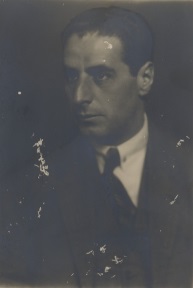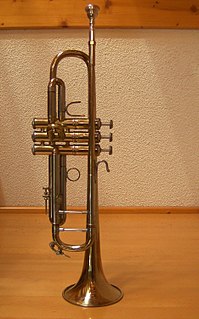
Ernst Toch was an Austrian composer of classical music and film scores. He sought throughout his life to introduce new approaches to music.
Ruth Dorothy Louisa ("Wid") Gipps was an English composer, oboist, pianist, conductor, and educator. She composed music in a wide range of genres, including five symphonies, seven concertos, and numerous chamber and choral works. She founded both the London Repertoire Orchestra and the Chanticleer Orchestra and served as conductor and music director for the City of Birmingham Choir. Later in her life she served as chairwoman of the Composers' Guild of Great Britain.
Arnold Atkinson Cooke was a British composer.
Walter Sinclair Hartley was an American composer of contemporary (classical) music.
John E. Ferritto was an American composer, conductor, and music professor.

Lior Navok is an Israeli classical composer, conductor and pianist. He was born in Tel Aviv. His music has been performed internationally by orchestras and ensembles including the Oper Frankfurt, Nuernberg Opera, Israel Philharmonic Orchestra, Boston Modern Orchestra Project, and the Tanglewood Festival Orchestra. Amongst the awards he has received are those from the Israel Cultural Excellence Foundation and the Massachusetts Cultural Council. He has also received awards from the Fromm Music Foundation, Lili Boulanger Memorial Fund Award, and Israel Prime Minister Award. In 2004, he was one of seven composers awarded commissions for new musical works by the Serge Koussevitzky Foundation in the Library of Congress and the Koussevitzky Music Foundation.
Zdeněk Lukáš was a prolific Czech composer who authored over 330 works. He graduated from a teachers' college and worked as a teacher from 1953 to 1963. He was a musical editor and program director at the National Broadcasting Company in Pilsen and conducted the Česká píseň, a choir in Pilsen.
Robert Comrie Turner, was a Canadian composer, radio producer, and music educator. He graduated with a bachelor's degree in music from McGill University in 1943. While there he studied with Douglas Clarke and Claude Champagne. He continued his studies briefly at Colorado College in 1947, where he met his wife, percussionist Sara Scott. They married in 1949. In 1947, Turner transferred to Peabody College in Nashville, Tennessee, where he studied with Roy Harris. He graduated in 1950 with a master's degree. During this time, Turner spent two summers studying with Herbert Howells and Gordon Jacob at the Royal College of Music and one summer at the Berkshire Music Center at Tanglewood studying with Olivier Messiaen. He returned to McGill University in 1951, graduating with a doctorate two years later.
Gary Kulesha is a Canadian composer, pianist, conductor, and educator. Since 1995, he has been Composer Advisor to the Toronto Symphony Orchestra. He has been Composer-in-Residence with the Kitchener-Waterloo Symphony (1988–1992) and the Canadian Opera Company (1993–1995). He was awarded the National Arts Centre Orchestra Composer Award in 2002. He currently teaches on the music faculty at the University of Toronto.
In music, a decet—sometimes dectet, decimette, or even tentet—is a composition which requires ten musicians for a performance, or a musical group that consists of ten people. The corresponding German word is Dezett, the French is dixtuor. Unlike some other musical ensembles such as the string quartet, there is no established or standard set of instruments in a decet.

The trumpet repertoire consists of solo literature and orchestral or, more commonly, band parts written for the trumpet. Tracings its origins to 1500 BC, the trumpet is a musical instrument with the highest register in the brass family.
In music, a duodecet—sometimes duodectet, or duodecimette—is a composition which requires twelve musicians for a performance, or a musical group that consists of twelve people. In jazz, such a group of twelve players is sometimes called a "twelvetet". The corresponding German word is Duodezett. The French equivalent form, douzetuor, is virtually unknown. Unlike some other musical ensembles such as the string quartet, there is no established or standard set of instruments in a duodecet.
Kurt George Roger was an Austrian–American composer.

Witold Friemann was a Polish composer, pianist, conductor and pedagogue. He was very prolific and composed more than 350 Opuses, most of which remain inedited.



